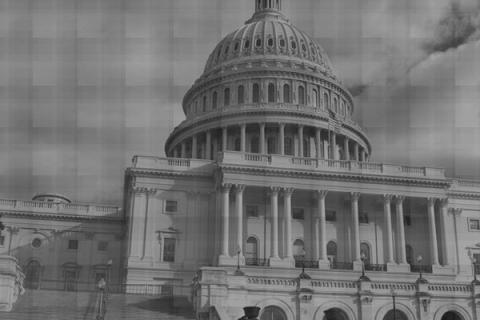On Tuesday, officials at NATO said they wanted to escalate the war in Libya. This news came a day after a fresh wave of NATO airstrikes bombarded Tripoli. In the meantime, the Obama administration has been briefed on the plans to increase the United States' “supporting role” in the “ongoing kinetic military action" taking place in North Africa.
White House officials won't admit to engaging in war with Gaddafi's forces, but they have stated that they are supporting more attacks on Tripoli because they “want to make sure he knows there is a war going on.” NATO officials insist that Monday's airstrikes were not an assassination attempt against the Libyan leader, however, some lawmakers in DC have publicly endorsed slaying Gaddafi for pragmatic ends: either to end what the Pentagon is calling a stalemate in the “quickest way possible” (if you follow Sen. Lindsey Graham's line of thinking) or to escalate the war to John McCain's satisfaction. Western officials have yet to settle the legality of the issue.
Warhawks claim that last month's UN resolution authorizing a no-fly zone over Libya gives NATO leaders the implicit authority to assassinate Gaddafi. If President Obama can advocate the assassination of an American citizen in the name of security for the “global citizenship” he's so fond of advocating, what is stopping the commander-in-chief from imposing this standard abroad? NATO officials are adamant that killing Gaddafi would only “make a martyr out of him.” The newest strikes are an effort to “change his calculus,” they say.
In related news, Obama is slated to name his new CIA and Defense Department heads. Not surprisingly, the President seems content with reshuffling the deck instead of selling the public on new faces. Current CIA director Leon Panetta will succeed Robert Gates as defense secretary. General Petraeus, commander of U.S. forces in Afghanistan, is set to take over as head of the intelligence agency. The Wall Street Journal says that “the nominations reflect Obama's belief that conflicts can be better fought with smaller, covert forces.”
If the anti-war movement hadn't been whitewashed by the brilliancy of President Obama's smile two years ago, there might be a few words of protest from progressive circles about the unencumbered continuation of the Bush-era war machine. At this time, the most viable and politically consistent anti-war movement appears to be emanating from the non-interventionist camp of Congressman Ron Paul.

